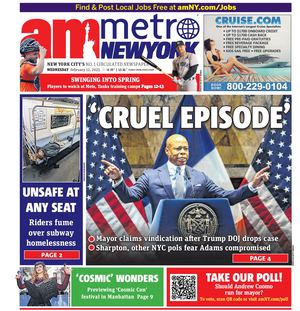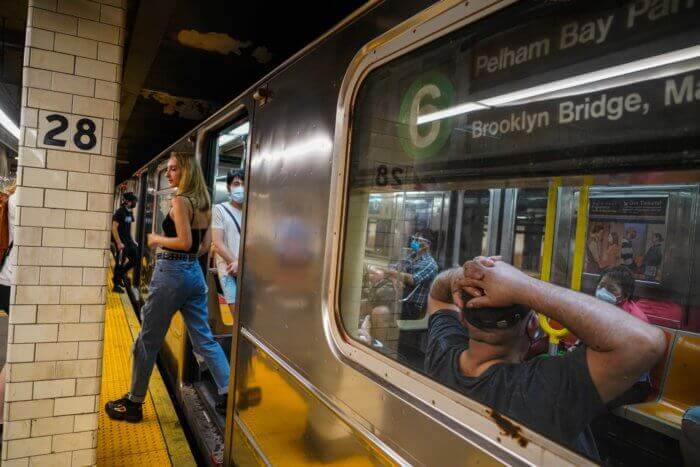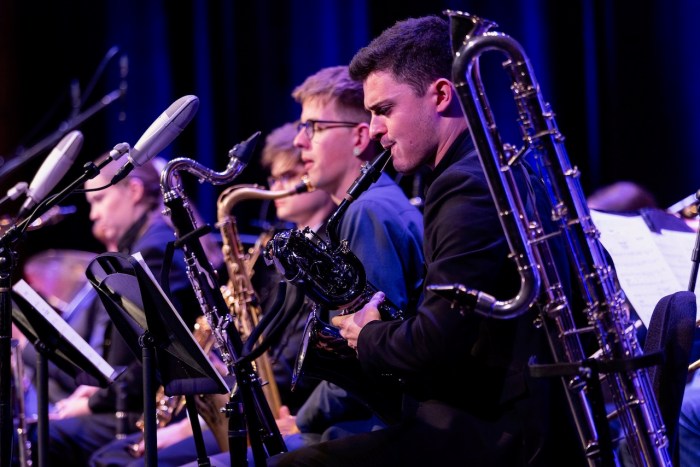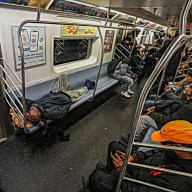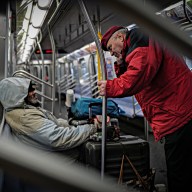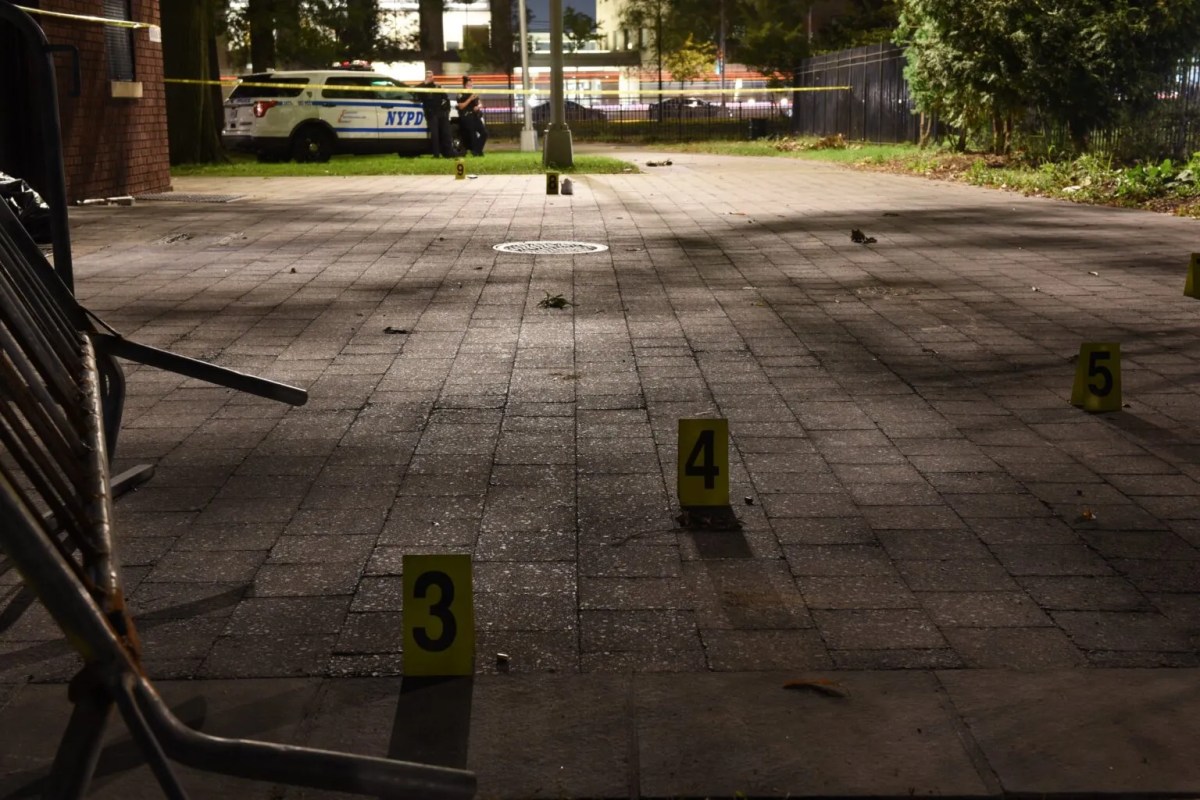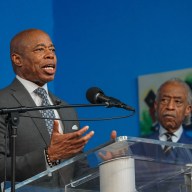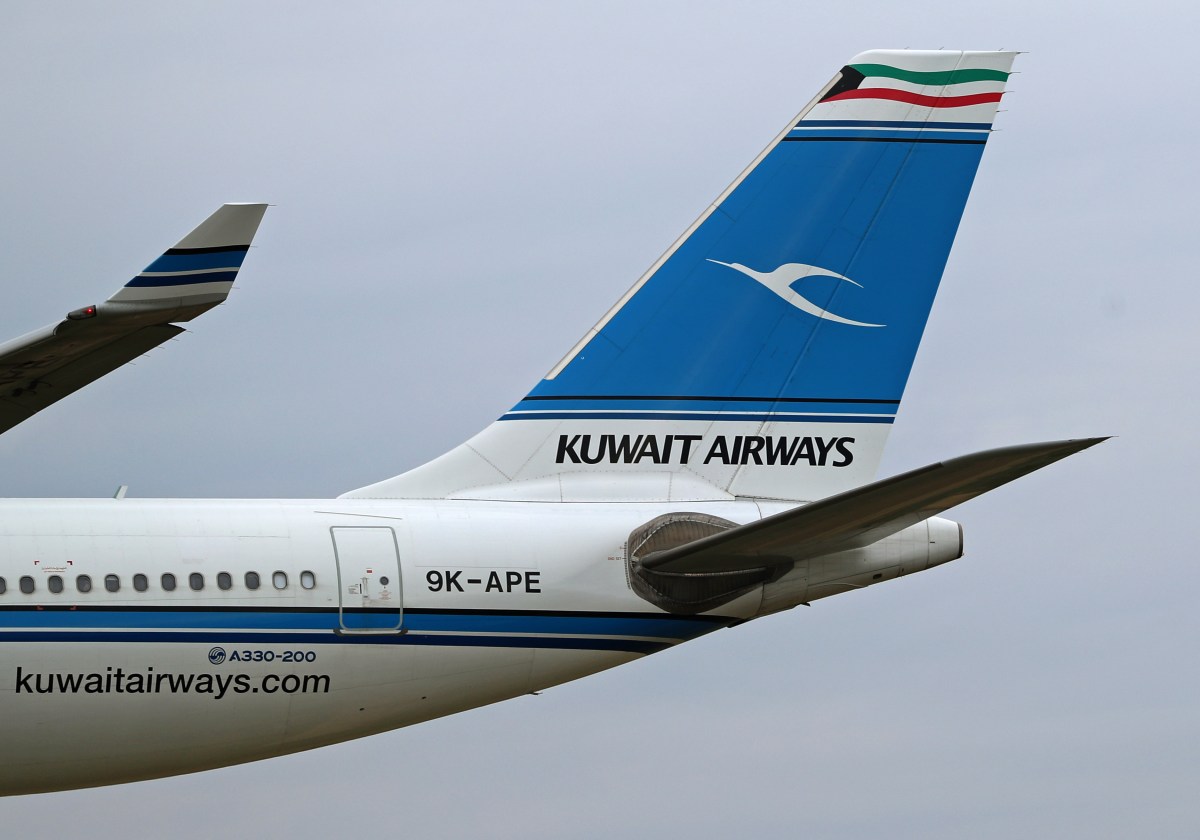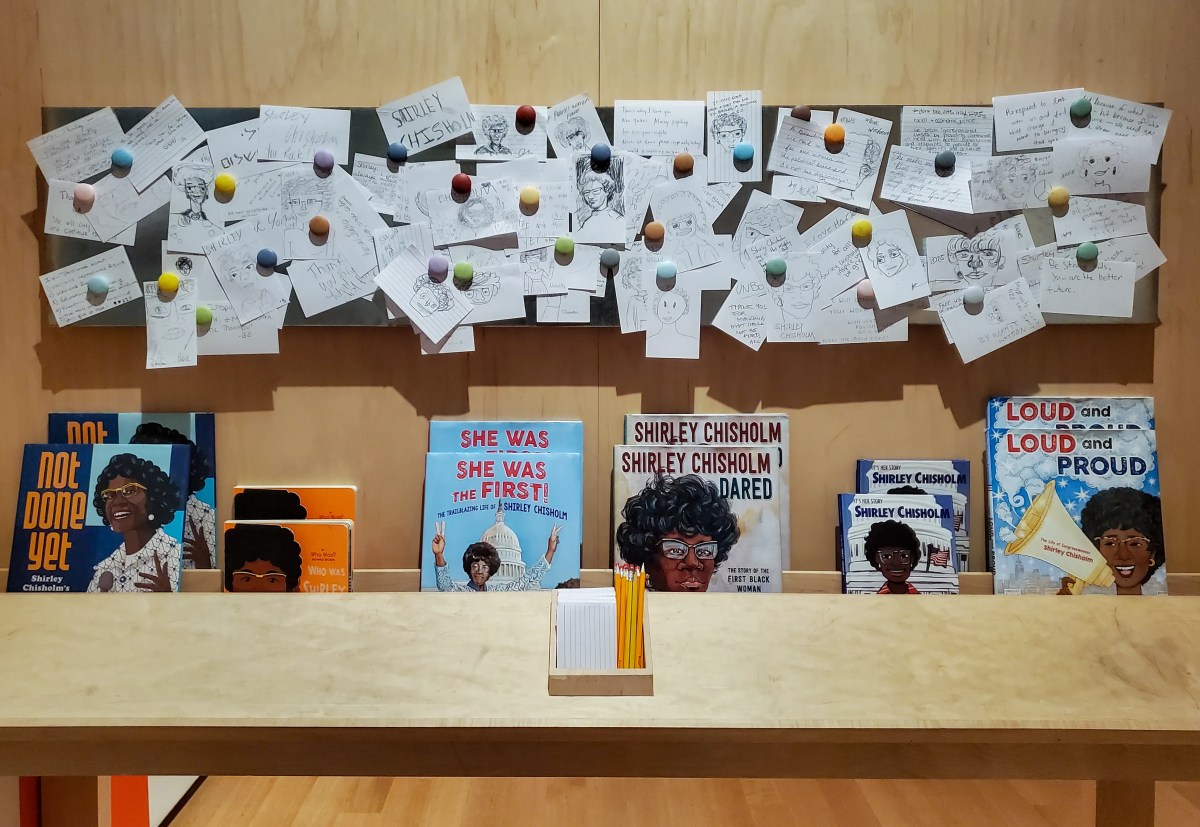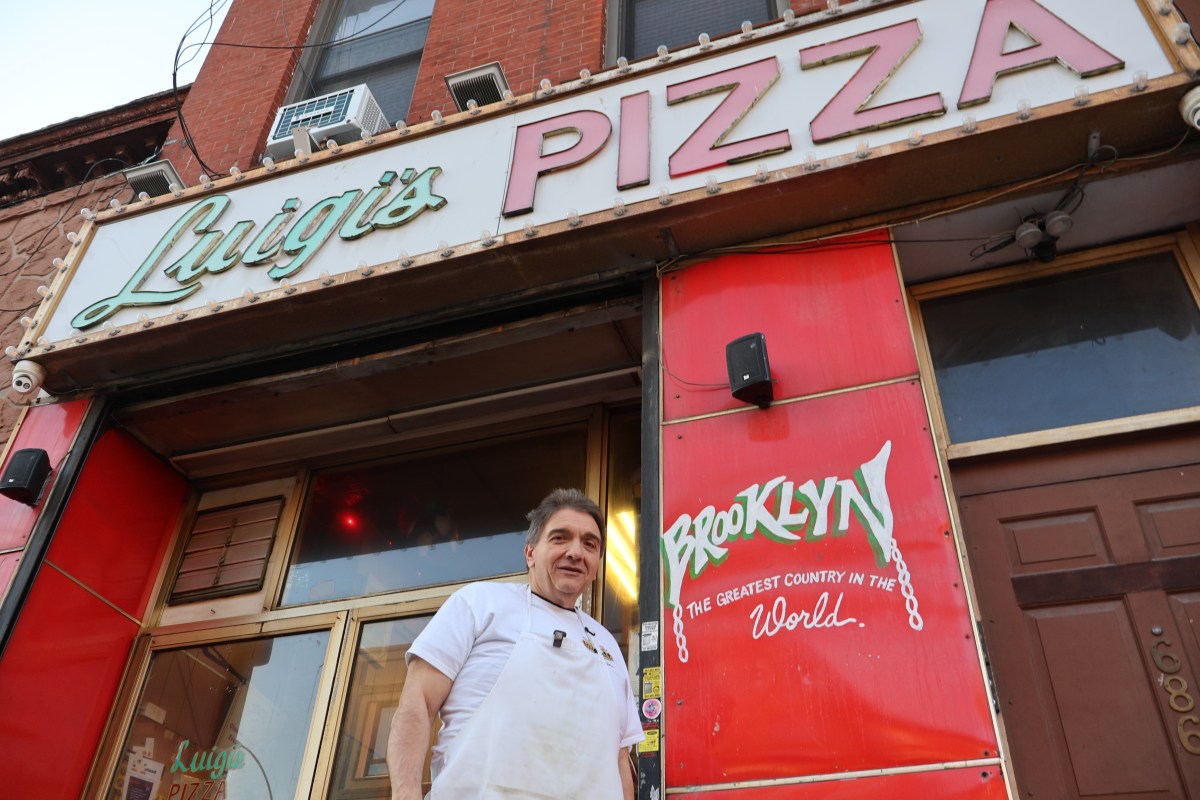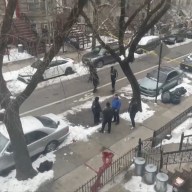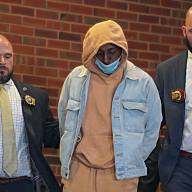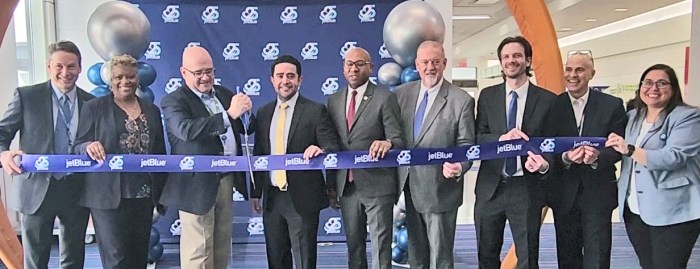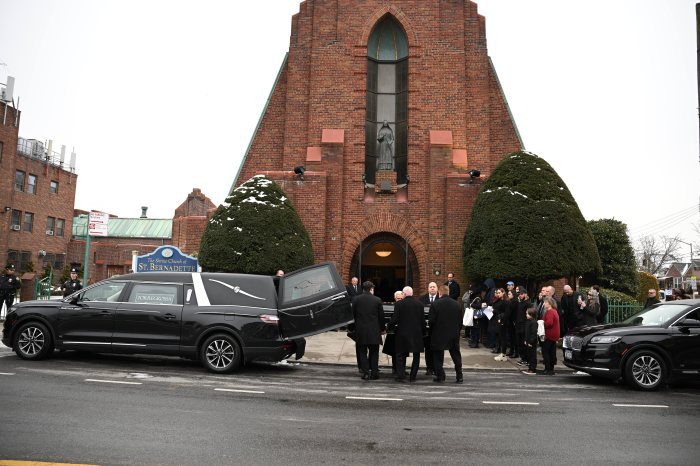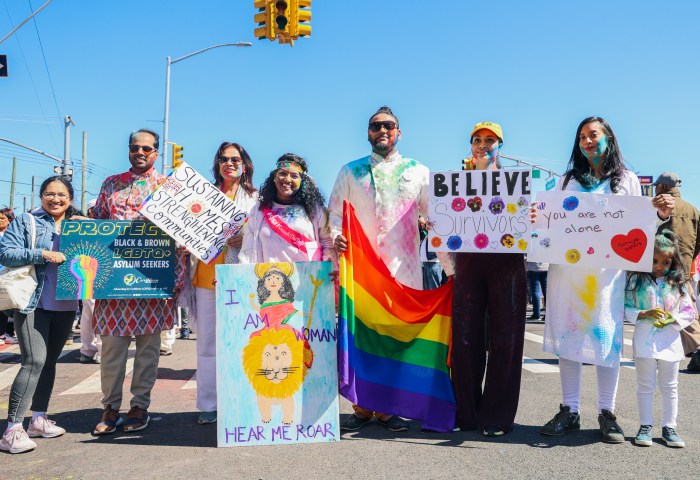The MTA on Monday proposed raising subway, bus, and paratransit fares to $2.90 by Labor Day — the first time the base fare would go up since it went to $2.75 in 2015.
The 15-cent fare hike, which is not finalized, will be subject to public hearings in June, with a schedule expected for that by the end of May. Following that, the MTA Board is expected to take a vote on a final set of increases in July, with the hope to implement them by the beginning of September.
Single-ride fares would go up by about 5.5%, while fares would go up by a smaller proportion on weekly and monthly unlimited passes. Weekly unlimited fares will rise by $1 to $34, while monthly unlimited passes will rise from $127 to $132.
Express bus rides would increase from $6.75 to $7 while a weekly unlimited pass would go up from $62 to $64.

The MTA will also modify its pilot for unlimited rides after 12 OMNY taps each week. Fare capping currently only applies to a Monday through Sunday schedule, but the agency plans to augment the program so it applies to any seven-day period.
Before the pandemic, transit riders were split about evenly between paying per ride and buying unlimited passes, but the share of unlimited riders has decreased since the MTA began rolling out OMNY into the system. Today, about 70% of riders use OMNY or pay-per-ride MetroCards, though a higher percentage of unlimited pass holders make under $68,000 per year.
On the Long Island Rail Road and Metro-North, the MTA is proposing a 4.6% average increase on one-way peak tickets, with a standard off-peak discount from peak fares of about 26%. Monthly and weekly unlimited fares would go up by 4.3%.

The transit agency is proposing bifurcating its CityTicket fare for commuter railroad trips within the five boroughs, keeping a $5 rate for off-peak fares while introducing a new peak fare of $7 as a pilot, and adding Far Rockaway to the fare zone. As a result, the MTA may choose to eliminate its $5 Atlantic Ticket for trips between Atlantic Terminal and stations in Brooklyn and Queens, which also came with a weekly unlimited MetroCard.
On the MTA’s nine bridges and tunnels, the agency is weighing two tolling options: across-the-board increases of 7%, or E-ZPass hikes of 6% and mailed tolls by 10%.
On the Triborough (RFK), Whitestone, Throgs Neck, and Verrazzano-Narrows bridges and the Queens Midtown and Brooklyn Battery tunnels, E-ZPass tolls would increase to either $6.96 or $7.01 depending on the option chosen, while mailed tolls would land either at $10.88 or $11.19. Henry Hudson Bridge tolls would go to $3.19 or $3.21 for E-ZPass and $8.03-8.25 for mailed tolls, while Cross Bay and Marine Parkway Bridge rates would go to $2.60-2.62 for E-ZPass and $5.45-5.60 for tolls by mail.
Those tolls are unrelated to congestion pricing, which would levy new tolls on motorists entering Manhattan’s central business district to raise money for MTA infrastructure.

Overall, the fare hikes would increase the MTA’s revenue from the farebox by about 4% and from tolls by 5.5%, bringing in about $305 million more per year starting in 2024. Governor Kathy Hochul had originally sought a 5.5% increase for transit fares in her executive budget, but the final handshake agreement kept that increase to 4% with a $65 million infusion to the authority.
Facing a looming “fiscal cliff” amid sluggish post-pandemic ridership, the recent state budget allocated about $1.1 billion annually to the MTA through an increase in payroll taxes on city businesses, plus new city funding for paratransit, a one-time $300 million state infusion, and an estimated $500-700 million annually from casino revenue starting in 2026.
Other issues remain unresolved, such as the fate of half-priced fares for low-income New Yorkers. Fair Fares is a city program and will be decided in the upcoming municipal budget; Council Speaker Adrienne Adams has called for doubling the income eligibility for the program, to those earning 200% of the federal poverty line. Mayor Eric Adams (who is not related to the speaker), who is seeking budget cuts across city government, has not committed to the funding.
“Mayor Eric Adams should cut subway and bus fares in half for the million New Yorkers who can least afford the hike in his budget due next month,” said Danny Pearlstein, policy and communications director at the Riders Alliance. “By expanding eligibility for the City’s Fair Fares program to struggling New Yorkers at 200% of the federal poverty line, Mayor Adams can save almost $1,600 for families earning up to $60,000. Expanding Fair Fares now would mean that low-income New Yorkers would never even feel the sting of a fare hike that takes effect on Labor Day.”
The present income threshold for Fair Fares, at 100% of the federal poverty line, excludes individuals making more than $14,580 in income per year. The mayor opposes increasing eligibility for Fair Fares, but in a statement to amNewYork Metro nonetheless took credit for baselining $75 million of annual funding for the benefit last year.
“Mayor Adams is always mindful of the financial burden fares have on riders, which is why we baselined the fair fares program and are actively working on more outreach and increasing enrollment,” said Adams’ deputy press secretary Kayla Mamelak in a statement. “While the decision is ultimately up to the MTA board, we encourage the board to focus on fare products that will not disproportionately impact low-income riders and essential workers.”
The potential elimination of the Atlantic Ticket, and specifically its free transfer between railroads and mass transit, was decried by the MTA’s in-house advocate, the Permanent Citizens Advisory Committee to the MTA. The executive director of PCAC, Lisa Daglian, said the free transfer should be brought over to the proposed expanded CityTicket.
“City Ticket should include the freedom to transfer to and from NYC Transit — a key component of Atlantic Ticket’s weekly option — that will help bring us towards a more integrated transit system,” said Daglian. “Getting rid of Atlantic Ticket — and with it, the only option to transfer between the commuter rails and NYC Transit on one fare — would be a big mistake.”
Before the pandemic, the MTA had programmatically implemented 4% fare revenue increases in 2015, 2017, and 2019, but that initiative was halted during the pandemic. On Monday, the MTA Board’s Finance Committee chair, Neal Zuckerman, said the MTA’s proposal was “reasonable” given historic inflation and the previous structure of periodic hikes.
“We haven’t had a fare increase for some time,” said Zuckerman. “This is a reasonable increase given inflation. It is in keeping with what we did for at least a decade, of having predictable 4% every two-year increases. So it is not surprising to the public that this number is where we’re at.”
Read more: Mayor Adams Visits Israel to Strengthen Jewish Ties
